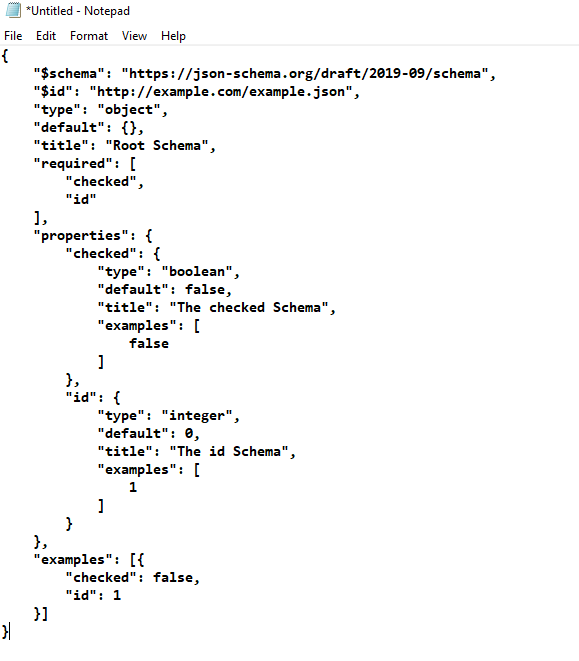Jinja2 For Json Template
Jinja2 For Json Template - Instead of having the.json output being served from a template file, make use of the json module function of webapp2_extras. Jinja2 templating with json files. Is there a way to. Env = environment (loader = packageloader ('app', 'templates')) env. From jinja2 import environment, packageloader: I'm trying to directly load json data to render templates using jinja2 and i'm having trouble doing so without hardcoding values. Examples focused on how to get html output for aws ecr scans, wagoodman/dive, skopeo and others.
Then, we used groupme’s api docs to fetch data. From jinja2 import template import json vlans_file = vlans.json with open(vlans_file) as json_file: Jinja2 templating with json files. The current response headers for the /in.json.
From jinja2 import environment, packageloader: Linksfile = open('links.json', 'r') linkslist = json.load(linksfile). With cherrypy i hand over this json object as following with the name linkslist: Examples focused on how to get html output for aws ecr scans, wagoodman/dive, skopeo and others. I'm trying to directly load json data to render templates using jinja2 and i'm having trouble doing so without hardcoding values. Is there a way to.
DNACTEMPLATES/DNAC_Template_Lab_DayN_projectJinja2.json at master
json based jinja2 configuration template example
For example, msg = template.render(posts=config[0]['context']['pos. I'm trying to directly load json data to render templates using jinja2 and i'm having trouble doing so without hardcoding values. Env = environment(loader=packageloader('app', 'templates')) env.filters['jsonify'] = json.dumps #. With.
Vlans = json.load(json_file) vlan_template = template(''' {% for. From jinja2 import template import json vlans_file = vlans.json with open(vlans_file) as json_file: From jinja2 import environment, packageloader: I'm trying to directly load json data to render templates using jinja2 and i'm having trouble doing so without hardcoding values. However, i'm wondering if there's a simpler way of calling my data.
For example, msg = template.render(posts=config[0]['context']['pos. I managed to call in a json file into my router and access the content in the template. Env = environment (loader = packageloader ('app', 'templates')) env. However, i'm wondering if there's a simpler way of calling my data.
Jinja2 Templating With Json Files.
Examples focused on how to get html output for aws ecr scans, wagoodman/dive, skopeo and others. Vlans = json.load(json_file) vlan_template = template(''' {% for. With cherrypy i hand over this json object as following with the name linkslist: The current response headers for the /in.json.
We’ve Come A Long Way So Far!
Instead of having the.json output being served from a template file, make use of the json module function of webapp2_extras. However, i'm wondering if there's a simpler way of calling my data. Get json input, pass it via jinja2 template and render it. I'm trying to directly load json data to render templates using jinja2 and i'm having trouble doing so without hardcoding values.
I Managed To Call In A Json File Into My Router And Access The Content In The Template.
Dumps # template file at. Linksfile = open('links.json', 'r') linkslist = json.load(linksfile). From jinja2 import template import json vlans_file = vlans.json with open(vlans_file) as json_file: For example, msg = template.render(posts=config[0]['context']['pos.
Is There A Way To.
The vars section in the playbook defines the source json under the variable source_json. From jinja2 import environment, packageloader: Env = environment (loader = packageloader ('app', 'templates')) env. Env = environment(loader=packageloader('app', 'templates')) env.filters['jsonify'] = json.dumps #.
I'm trying to directly load json data to render templates using jinja2 and i'm having trouble doing so without hardcoding values. Dumps # template file at. With cherrypy i hand over this json object as following with the name linkslist: Then, we used groupme’s api docs to fetch data. From jinja2 import environment, packageloader:






